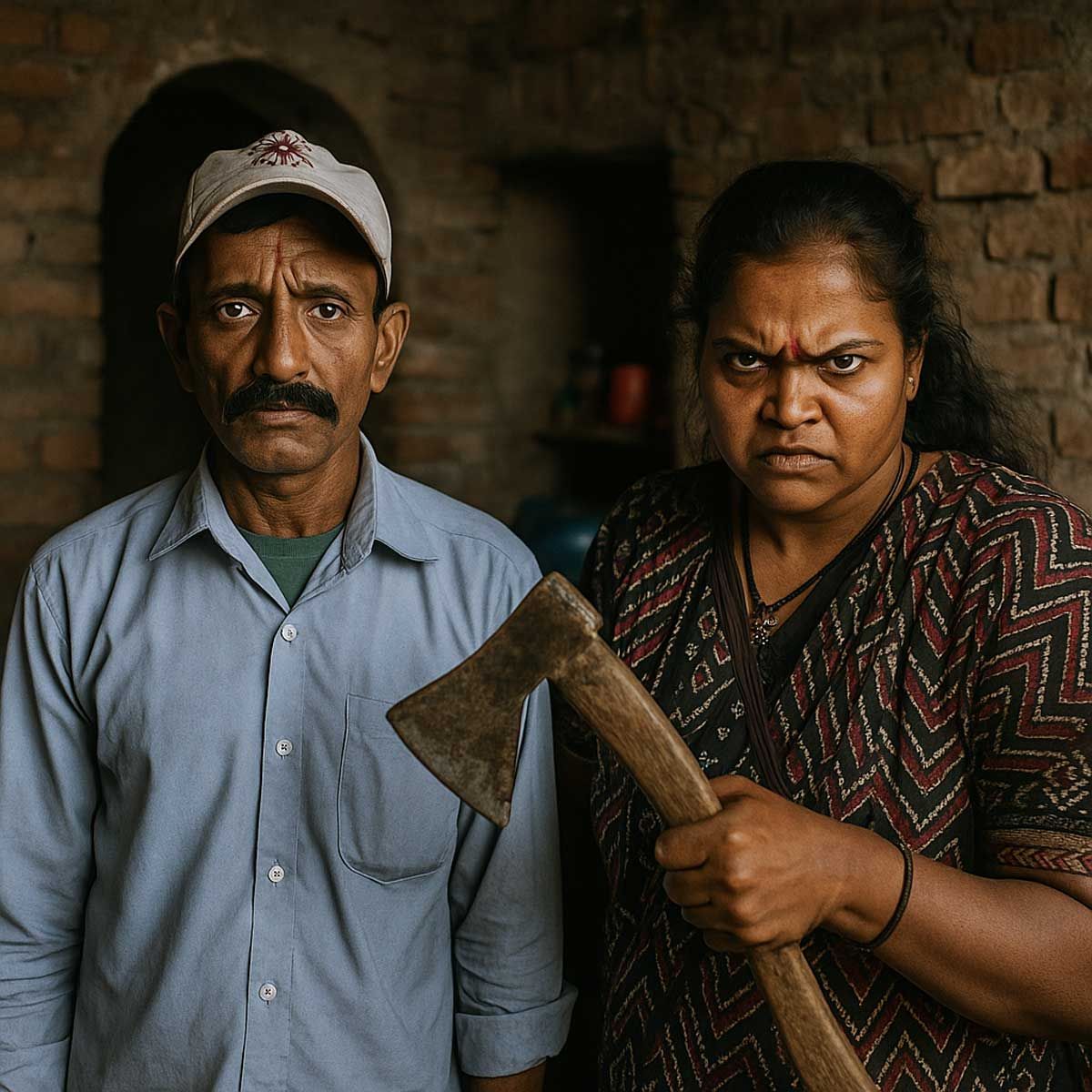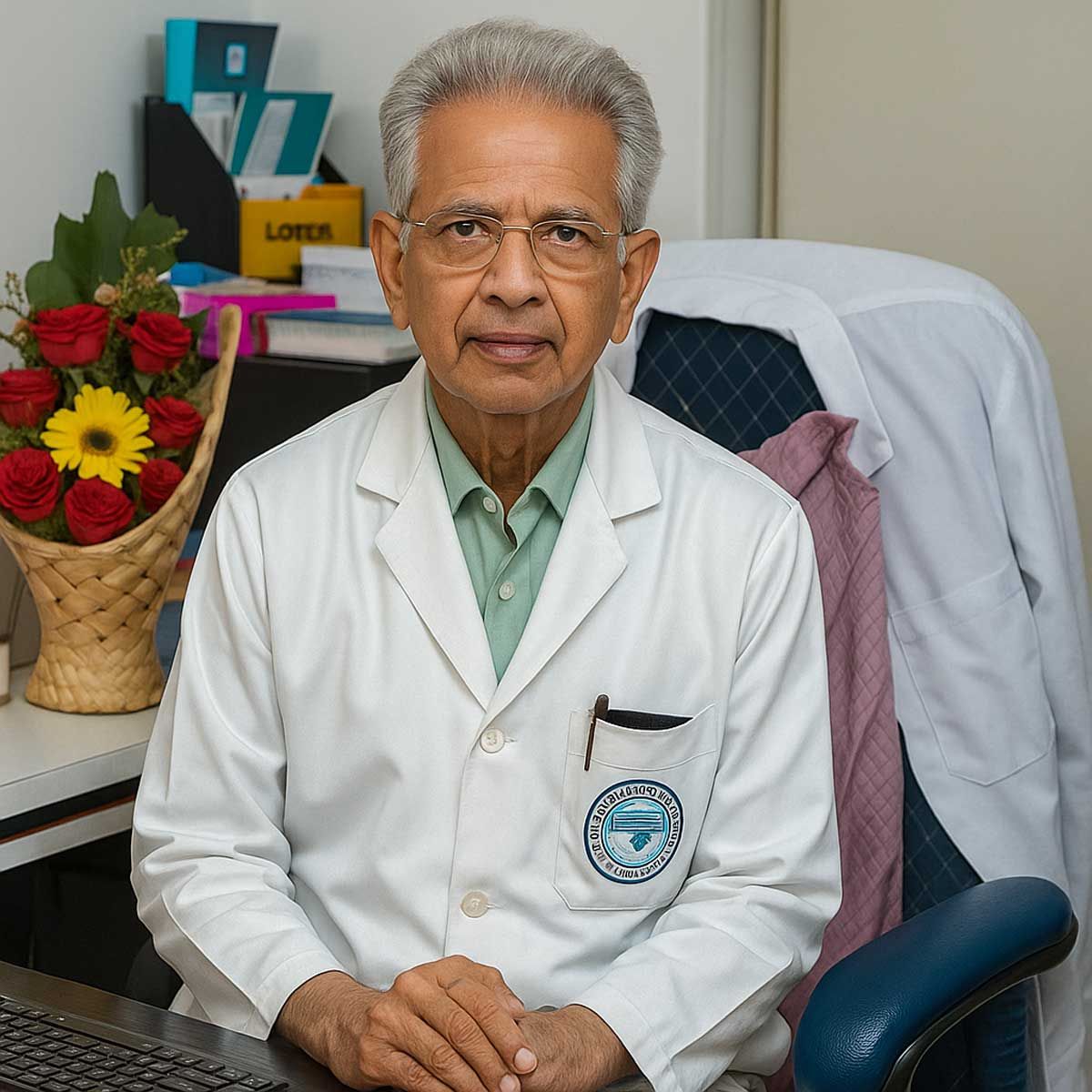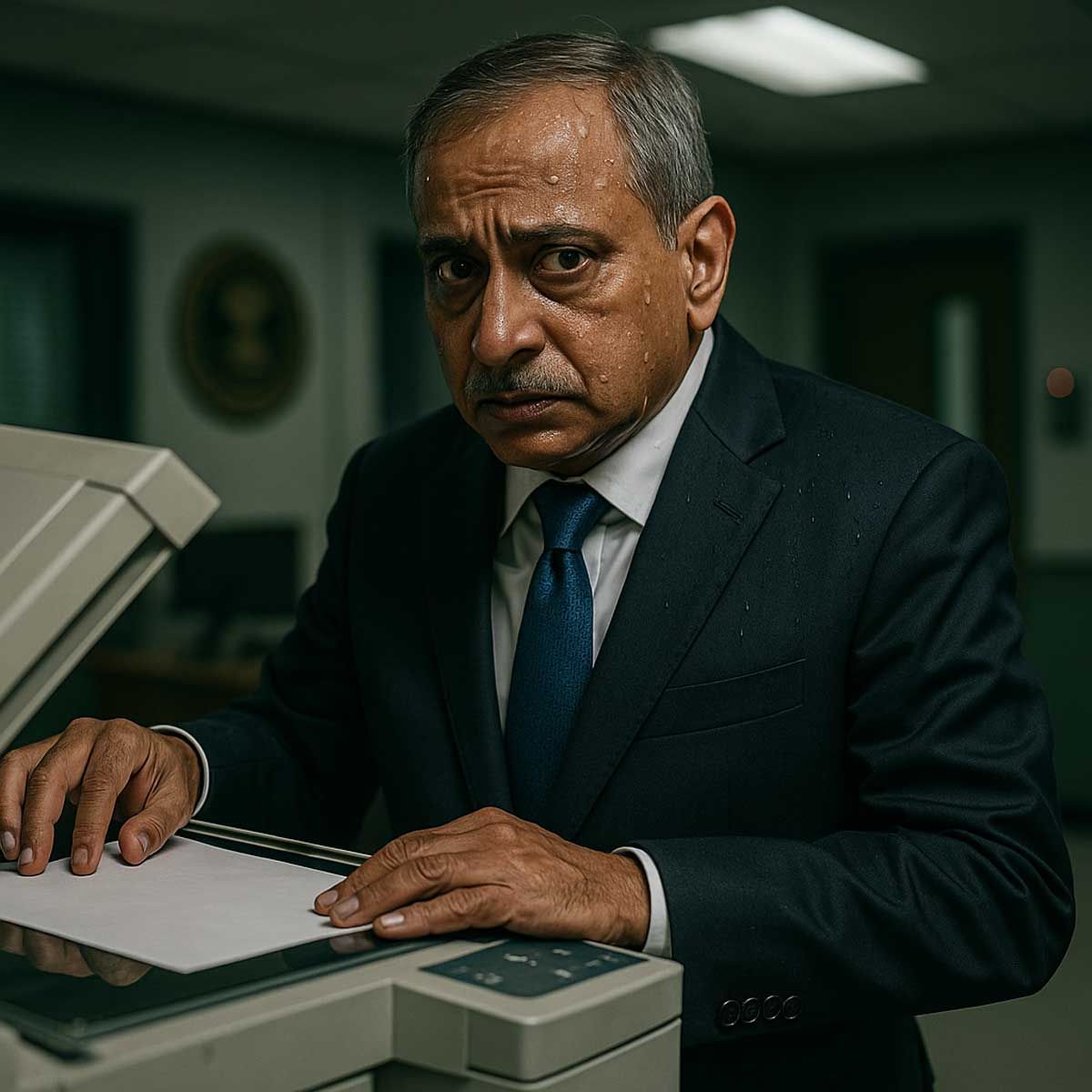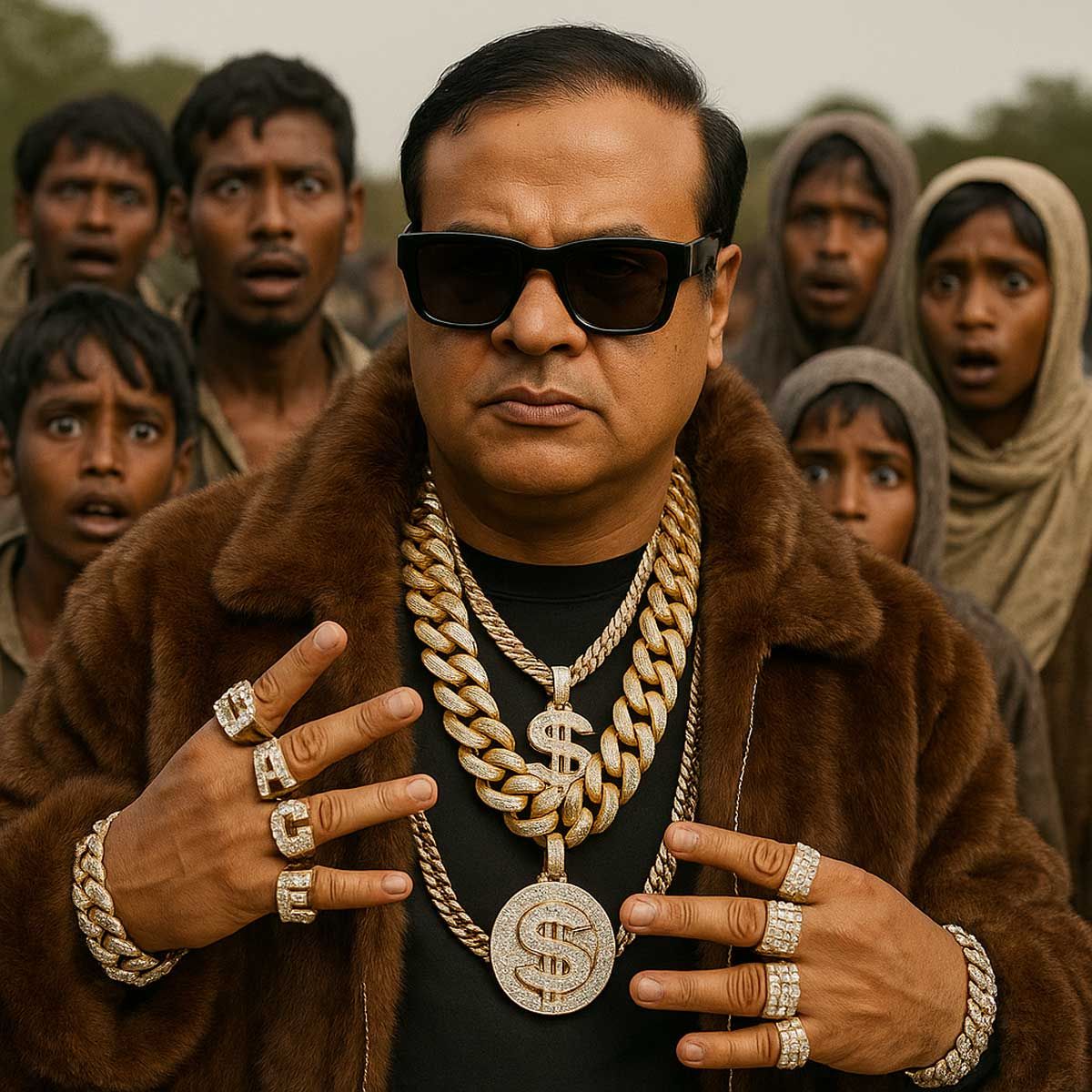More Coverage
Twitter Coverage
Satyaagrah
Written on
Satyaagrah
Written on
Satyaagrah
Written on
Satyaagrah
Written on
Satyaagrah
Written on
JOIN SATYAAGRAH SOCIAL MEDIA
OP Jindal Global University facilitated a hate-mongering ex-prof under the guise of discussing 'History and Politics of the Palestinian Present', who made anti-Hindu remarks, Sameena Dalwai forced students to join the talk and hates ‘Jai Sri Ram’ chant
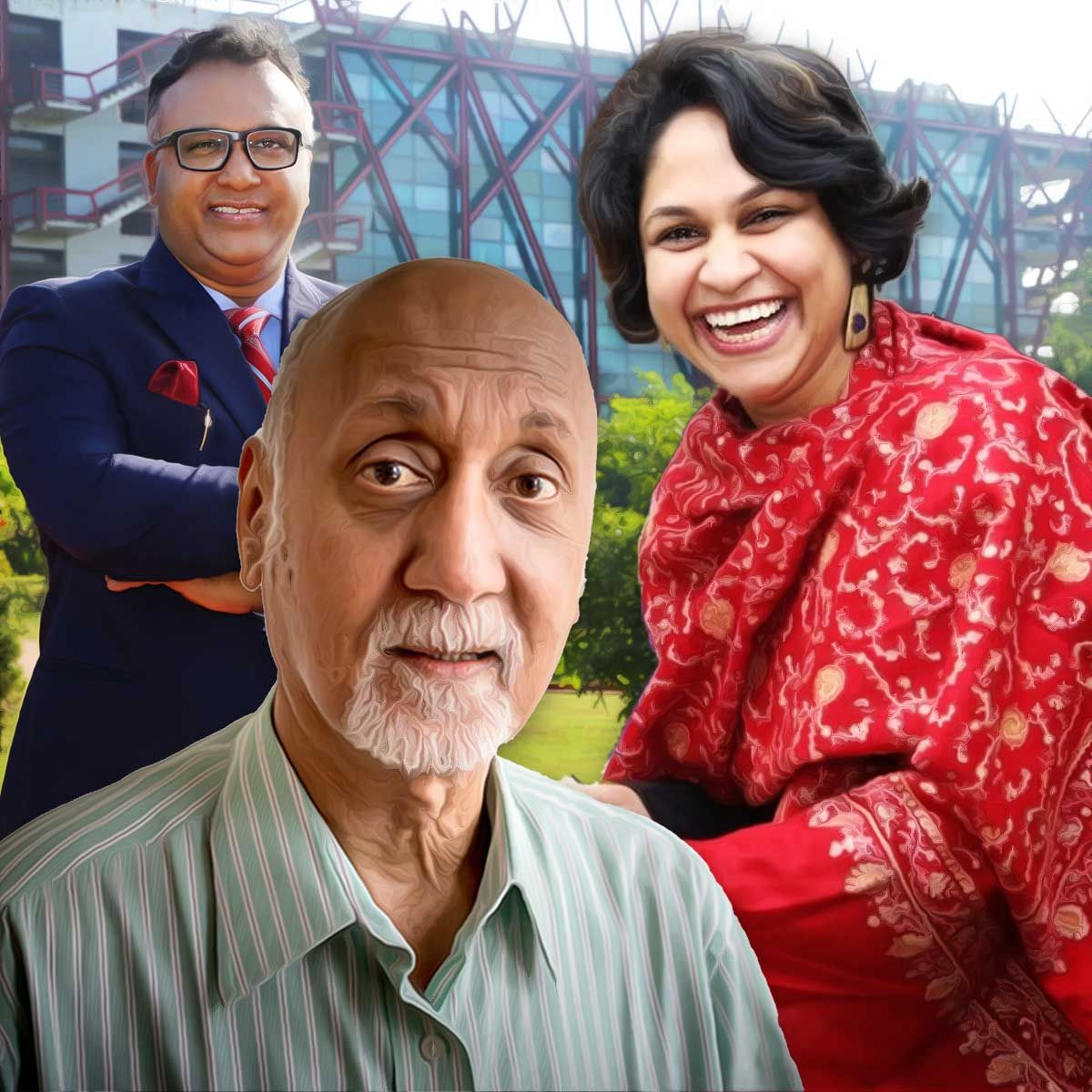
In the midst of escalating tensions in the Middle East, particularly the military operations in Gaza following the terror attack on October 7, a concerning surge in antisemitic sentiment has been observed globally, primarily among certain left-liberal groups, alongside Islamist factions. This trend has disturbingly made its way into academic circles, as evidenced at a recent event held by OP Jindal Global University.
|
The university found itself at the center of a heated debate after hosting a lecture titled ‘The History and Politics of the Palestinian Present’ on November 1. The speaker, Professor Achin Vanaik, a retired Professor of International Relations and former Head of the Department of Political Science at the University of Delhi, who now engages in activism, has come under fire for his remarks. Excerpts from the talk have circulated on social media, drawing attention to statements made by Professor Vanaik that have been criticized as both antisemitic and anti-Hindu. Moreover, he openly criticized the Modi government's stance on the Israel-Palestine conflict.
This incident has sparked a broader conversation about academic freedom, hate speech, and the role of educational institutions in political debates. It raises questions about the line between criticism of government policies and derogatory speech, as well as the responsibilities of educators to foster a respectful and open-minded learning environment.
The university's decision to back the talk, despite the contentious nature of Professor Vanaik's views, particularly his disdain for the Hindu slogan ‘Jai Sri Ram,’ has added another layer to the controversy. This has led to a polarized response from the public, with some defending the academic's right to free speech, while others are calling for accountability for spreading hate under the guise of political commentary.
|
The lecture at OP Jindal Global University, which was expected to address 'The History and Politics of the Palestinian Present', diverged into a broader critique of religious and political ideologies by Professor Achin Vanaik. His commentary extended beyond the Israeli-Palestinian conflict, touching upon sensitive topics concerning Hinduism and Hindutva.
Professor Vanaik drew a distinction between Zionism and Hinduism, notably in their approach to Islam. He articulated that Zionism's conflict is specifically with Palestinians rather than with Islam as a whole, suggesting that it leverages the prevailing climate of Islamophobia. On the other hand, he claimed that Hindutva is inherently opposed to Islam: “Zionism is not anti-Muslim, it is anti-Palestinian, but it is happy to piggyback on current Islamophobia. Hindutva is fundamentally and foundationally anti-Muslim”.
These remarks by Professor Vanaik have sparked intense debate and highlight a critical issue within the discourse on nationalism and religious identity politics. His specific language and assertions regarding Hindutva and Zionism have raised questions about the nature of political criticism and its reception in the broader context of interfaith understanding and relations. The implications of his comments are significant and have prompted a thorough examination of the perspectives presented in the lecture.
Professor Achin Vanaik's statements ventured into the domain of historical claims regarding Hindu civilization. He challenged the view that Hindus are the original inhabitants of India and that Hinduism stands as one of the world's most ancient civilizations. Vanaik argued against this traditional perspective by suggesting that "archaeological and scientific evidence shows that Vedic civilizations are much older than the emergence of Vedas by around 2000 years," implying a need to reassess the narrative surrounding the Saraswati Valley Civilization.
Addressing the contentious issue of terrorism, he scrutinized the inconsistency in its application to violent acts, depending on the actors involved. Without access to the full lecture, the available clips indicate that Vanaik equated Israeli military action against Hamas with terrorism, drawing parallels to the Pulwama terror attack, an incident widely recognized as an act of terrorism. He pointed out the discrepancy by stating, "it is selectively said that ‘killing our soldiers is terrorism but killing their soldiers is not terrorism,'" thus critiquing what he perceives to be a selective condemnation of such acts.
|
These comments, touching upon the sensitive issues of historical narratives and the ethics of conflict, are sure to provoke a dialogue regarding the interpretation of history and the principles governing the use of the term 'terrorism' in international conflicts.
In a move that has raised eyebrows and ire alike, Professor Achin Vanaik was reported to have made statements that could be construed as glorifying suicide bombings, a tactic frequently used by Islamic Jihadi terrorists. His assertion, “Understand one thing about suicide bombing, suicide bombing expresses above all the determination of not to kill so much as the determination to die,” attempts to reframe the act of suicide bombing. This perspective may appear to some as an effort to paint the motivations behind such acts in a more empathetic light, overshadowing the devastating impact on innocent lives and the very definition of terrorism as an indiscriminate attack against non-combatants for political or religious ends.
Professor Vanaik's articles on the Israel-Hamas conflict further contribute to his contentious viewpoints. Despite the acknowledged fact that Israel does not have an occupational force in the Gaza Strip, where Hamas exercises administrative control, he has labeled Israel as an ‘occupier’. Additionally, he attempts to redefine Israel’s military responses to Hamas as acts of terrorism. This claim particularly stands out where he questions, in his article for The Wire, the global perception of Israel's actions: “how is it that Israel is able to get away, both before and after the Hamas assault, with its assaults on civilians not being widely recognized at home and abroad as terrorism?”
|
Rashmi Samant's tweet presents a potent critique, likening Professor Achin Vanaik's comments to those of known terrorists for his statements on suicide bombing. She expresses deep concern and disbelief that individuals with such views are part of Indian academia.
"How Bharatiya Army, Hindutva, Hindu Dharma, RSS is being vilified and criminalized in Institutions and Educational campuses in Bharat. 1st Nov 2023: OP Jindal Global University organized an event in support of Hamas, a proper Terr0rist organisation. The man Vanaik, in his talk at Jindal, justified suicide bombing as 'greatest sacrifice of the self'. How is this even being allowed?" Samant’s tweet conveys her alarm at the perceived endorsement of extreme views in an educational setting, especially concerning sensitive geopolitical issues.
She further highlights a perceived pattern of vilification against Hindu culture and organizations, suggesting discomfort not only among herself but also reportedly among some students and faculty members. The critique extends to Professor Sameena Dalwai, whom Samant accuses of expressing criticism toward Hindu students and for voicing disapproval of the religious chant "Jai Shri Ram."
Samant's tweet underscores a call to action regarding the conversations taking place in educational institutions and the figures leading them. Her message is a rallying cry for examining the boundaries of free speech and the responsibility of academic institutions to foster environments that do not propagate views aligned with terrorism or that could incite hatred and division.
The commentary drawing comparisons between Achin Vanaik and infamous figures such as Hafiz Saeed, and insinuating that his perspective on suicide bombings aligns with that of extremists like Osama Bin Laden, is a severe indictment of his statements. The criticism extends to Sameena Dalwai, who is labeled as a "typical jihadist," questioning the hiring practices of universities in India that accommodate such individuals.
|
|
Further intensifying the controversy, it is disclosed that Achin Vanaik is associated with The Transnational Institute, which is backed by George Soros's Open Society Foundation. Influence Watch reports that the institute received a total of US $2.9 million from 2016 to 2021. This connection to a well-known philanthropic organization raises additional questions about the influence of international funding on academic discourse and whether it shapes the narratives and ideologies espoused by academicians like Vanaik.
These revelations contribute to the ongoing debate over academic freedom, external influences on educational institutions, and the accountability of educators in their professional conduct and expressions. The financial backing from a prominent foundation adds another layer of complexity to the scrutiny of Vanaik's statements and his role within the academic community.
The controversy surrounding the talk at OP Jindal Global University deepened with the emergence of an email from Dr. Sameena Dalwai, a faculty member at the Jindal Global Law School. Addressed to an individual who had expressed opposition to Professor Achin Vanaik's lecture, Dr. Dalwai's email encouraged attendance at the talk to broaden perspectives, stating, “It will expand the limited understanding of politics and narrow view of suffering that your email exhibits.” This statement has been perceived by some as dismissive and has been criticized for its patronizing tone towards those holding differing views on the subject of the lecture.
Sameena Dalwai is an Associate Professor and Assistant Director of, the Centre for Women, Law and Social Change at Jindal Global Law School. She has an LLM from Warwick and a PhD from Keele University. She has worked as a lawyer with human rights organisations in Mumbai, as well as with NGOs in rural Maharashtra. She writes on caste, gender, sexuality, communalism and the law, and is a newspaper columnist in English and Marathi. Her co-edited anthology of memoirs, Babri Masjid, 25 Years On… was published in 2017.
Dr. Dalwai's response highlights the tensions that can arise in academic settings when controversial topics are discussed. The implication that those who object to the content of the talk may have a 'limited understanding of politics and a narrow view of suffering' is a provocative claim that suggests a binary between academic discourse and the personal convictions of individuals within the university community.
The debate is indicative of a larger conversation about academic freedom, the bounds of respectful discourse, and the role of educators in facilitating discussions on contentious issues. It raises questions about how educators should engage with dissent and the extent to which they should challenge the viewpoints of their audience. This incident underscores the need for dialogue that is inclusive and considers multiple perspectives, especially in educational institutions that are meant to be bastions of diverse thought and debate.
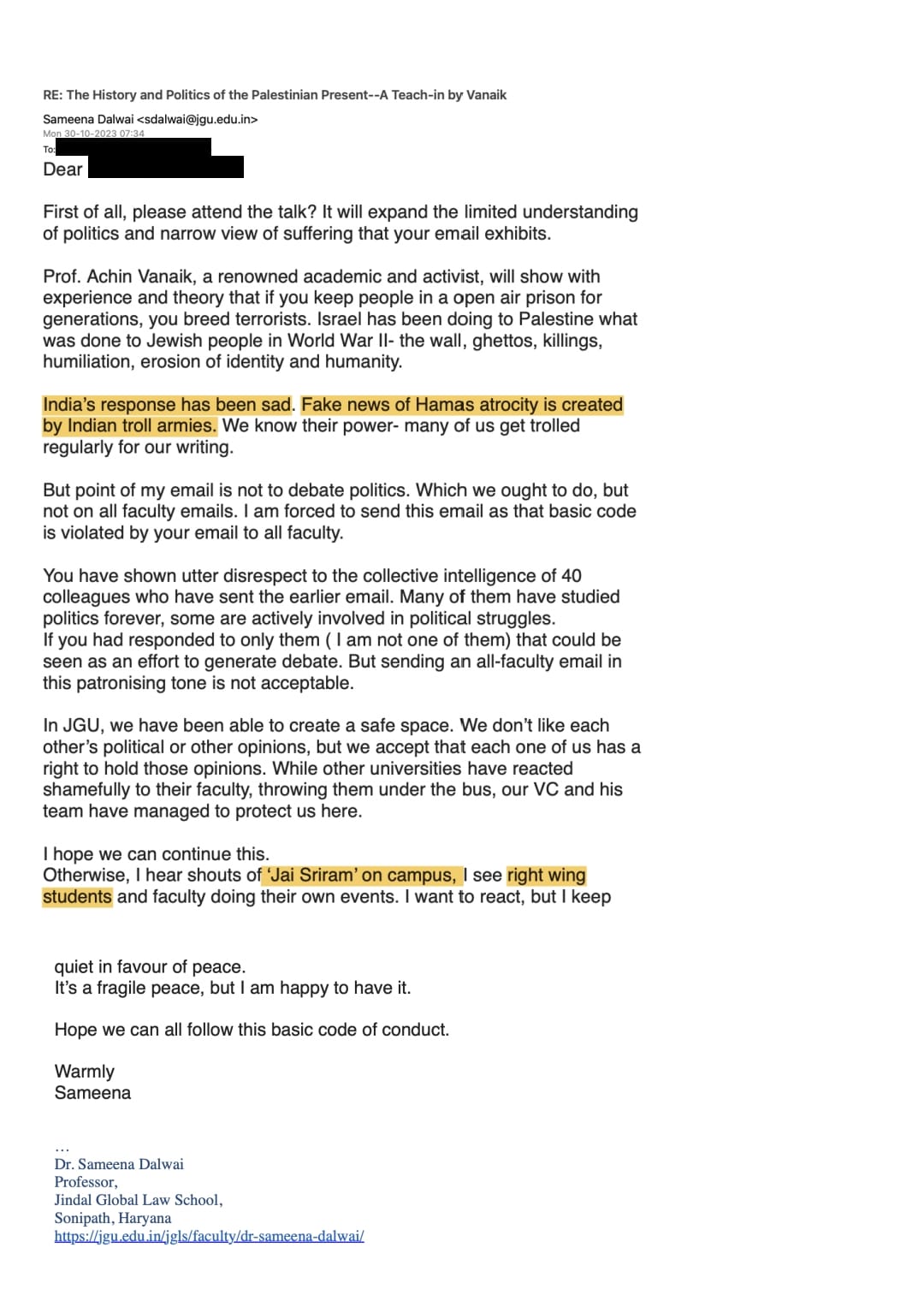 |
Dr. Sameena Dalwai's claims regarding the actions of Hamas challenge the globally acknowledged reports of the conflict between Hamas and Israel. Her statement that any atrocities by Hamas on Israeli civilians are “fake news by Indian troll armies” dismisses the numerous documented instances recognized internationally by various governments and human rights organizations. Such claims could potentially undermine the severity of the situation and the reality faced by civilians caught in the conflict.
Her expression of dissatisfaction with India's response, “India’s response has been sad. Fake news of Hamas atrocity is created by Indian troll armies. We know their power- many of us get trolled regularly for our writing,” seems to conflate the critical issue of misinformation with the legitimate reporting of violence in conflict zones. This narrative could be seen as detracting from the actual human suffering and shifting the focus to a narrative of online misinformation.
|
|
Dr. Dalwai's pride in her university's respect for diverse opinions is shadowed by her criticism of other universities, accusing them of having “reacted shamefully to their faculty, throwing them under the bus.” The implication here is that other institutions have not upheld academic freedom, a serious allegation in the realm of higher education.
Moreover, Dr. Dalwai's personal stance on right-wing events at her university, which she does not favor but chooses to remain silent on, may be perceived as a reluctant acceptance of free speech. It raises questions about the sincerity of the commitment to diversity of thought when one's own preferences are in conflict with the events taking place.
These statements reflect a complex relationship with the concepts of free speech, academic freedom, and the interpretation of international events, suggesting a bias that may not align with the objective analysis expected from academic professionals.
|
 Support Us
Support Us
Satyagraha was born from the heart of our land, with an undying aim to unveil the true essence of Bharat. It seeks to illuminate the hidden tales of our valiant freedom fighters and the rich chronicles that haven't yet sung their complete melody in the mainstream.
While platforms like NDTV and 'The Wire' effortlessly garner funds under the banner of safeguarding democracy, we at Satyagraha walk a different path. Our strength and resonance come from you. In this journey to weave a stronger Bharat, every little contribution amplifies our voice. Let's come together, contribute as you can, and champion the true spirit of our nation.
 |  |  |
| ICICI Bank of Satyaagrah | Razorpay Bank of Satyaagrah | PayPal Bank of Satyaagrah - For International Payments |
If all above doesn't work, then try the LINK below:
Please share the article on other platforms
DISCLAIMER: The author is solely responsible for the views expressed in this article. The author carries the responsibility for citing and/or licensing of images utilized within the text. The website also frequently uses non-commercial images for representational purposes only in line with the article. We are not responsible for the authenticity of such images. If some images have a copyright issue, we request the person/entity to contact us at This email address is being protected from spambots. You need JavaScript enabled to view it. and we will take the necessary actions to resolve the issue.
Related Articles
- Dangerous plots of Khalistan uprising and Hindu genocide, hurling abuses to Hindu Gods, arrest of Hindus for ‘blasphemy’ when retaliating - The menacing truth of underbelly of Clubhouse
- The former RAW officer claims that Ex Muslim Vice President Hamid Ansari while serving as an Indian Ambassador to Iran exposed the RAW set-up in Tehran endangering the lives of RAW unit members
- "बँटवारा": Arfa Khanum Sherwani calls for Sir Syed Ahmed Khan’s leadership, sparking controversy as Khan, founder of AMU and proponent of the Two Nation Theory, fueled the Hindu-Muslim divide with Islamists aiming to make India an Islamic nation by 2047
- "A symphony of anti-India agendas": Rahul Gandhi's camaraderie with Hindumisic author Christophe Jaffrelot in a recent event stirs controversy; the prolific critic of India, BJP & Indian judiciary, notably participated in 'Dismantling Hindutva' conference
- Former Muslim Vice President Hamid Ansari and actress Swara Bhasker share dais with Jamaat-e-Islami linked IAMC which lobbied to get India blacklisted and is infamous for targeting India many times for its sovereign decisions
- "Traitors wear many masks but have only one face": J&K Bank's Chief manager, Sajad Ahmad Bazaz, sacked for shadowy ISI links, manipulating media with bank funds, and ties to extremist leaders, was planted for advancing the extremist-separatist ideology
- Lt Col Purohit's shocking testimony to the NIA court exposes torture by ATS to force accusations against RSS, VHP, and Yogi Adityanath in the Malegaon blast, revealing deep-seated plots involving ISI agents and an attempt to coin the term 'Saffron Terror'
- "Hate is too great a burden to bear": As India strides towards development, IIT Delhi's Prof. Divya Dwivedi incites anger, calling for the wiping out of Hinduism at the global G20 Summit, fostering division rather than appreciating the nation's progress
- Anti-Hindu Delhi Riots case: Delhi HC grants bail to accused Asif Iqbal Tanha, Devangana Kalita, Natasha Narwal
- Misleading claim in NCERT textbook about Mughal emperors giving grants for temple repairs will not be removed: Delhi HC
- Car manufacturers Celebrating Pro-terrorism stand on Kashmir has invited massive criticism from National auto dealers’ body: Urges the Ministry of Heavy Industries & SIAM India to seek clarifications
- "Professor Schooled": OP Jindal University slams an 'activist' for anti-Hindu remarks in a Palestine issue talk, also issuing a stern warning to Professor Sameena Dalwai over discrimination against Hindu students - a bold stand for fairness in academia
- Saba Naqvi infers that re-settling Kashmiri Pandits in the valley decades after the genocide was perpetrated against them by Islamic terrorists is a part of the ‘Hinduisation’ project: Mirrors Jihadis and Islam extremists
- On 16th Aug 1946, during Ramzan's 18th day, Direct Action Day aimed to provoke Muslims by mirroring Prophet Muhammad's victory at Badr, Gopal 'Patha', the Lion of Bengal, heroically saved Bengali Hindus & Calcutta from a planned genocide, altering history
- "Your intentions and actions create ripples in the universe. Make them count": Avtar Singh Khanda, an asylum seeker Khalistani terrorist passed away in a UK hospital in Birmingham late last night after NIA released 45 wanted criminals for identification















